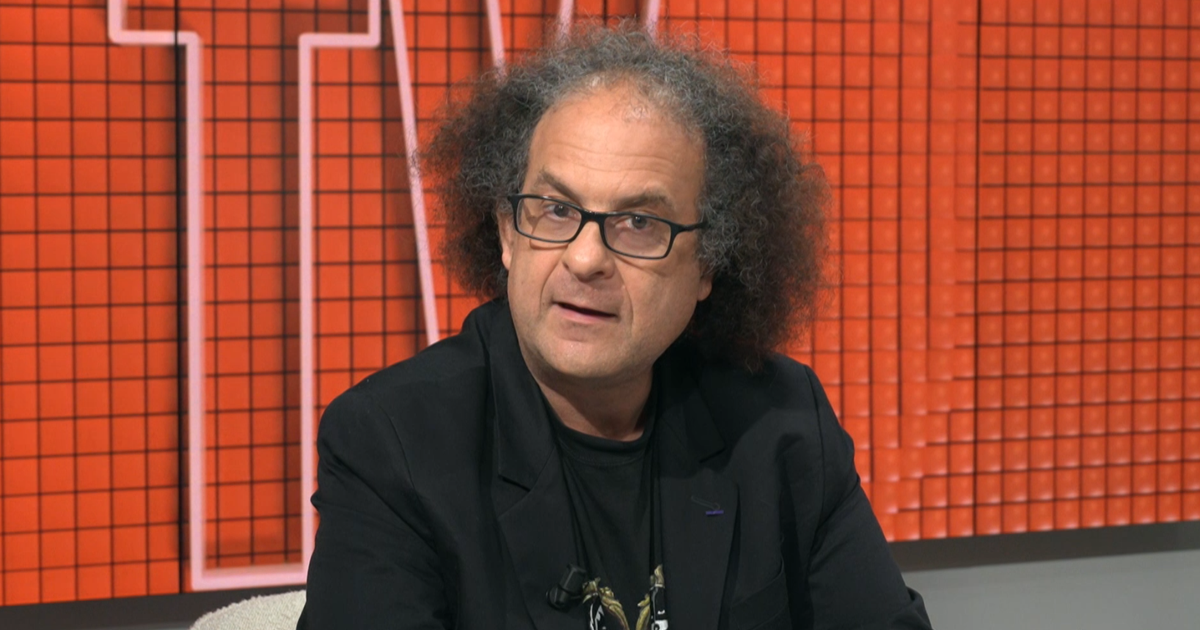Maren Eggert, with the Silver Bear for best performance, in June in Berlin.TOBIAS SCHWARZ / POOL / AFP via Getty Images
First it was the Berlinale.
Later, in Spain, the Huelva and San Sebastián competitions.
The performance awards differentiated by sex, that is, for best actor and actress, are over.
“The awards will be defined in a gender-neutral way.
And so a Silver Bear will be awarded for the best leading performance and a Silver Bear for the best supporting performance, "said those responsible for the Berlin festival when announcing the decision, which effectively, in March was transferred to the list of honors: the best Leading performance was obtained by the German actress Maren Eggert, for
Ich bin dein Mensch,
and the best secondary went to another woman, the Hungarian Lilla Kizlinger, for
Rengeteg - mindenhol látlak.
More information
The San Sebastián film festival eliminates the distinction of sex in its acting awards
Romanian satire Radu Jude wins Berlinale 2021 Golden Bear
This change in criteria was not applauded by the entire industry.
But yes analyzed and followed by other festivals.
Of the fifteen category A world competitions, the highest level, San Sebastián decided in June that it will also have a Silver Shell for the best leading performance and another for the best secondary work without distinction of gender (until now there were no awards for cast work).
Thus, the last Silver Shell for an actress was for the Georgian Ia Sukhitashvili, protagonist of
Beginning
, last year. Five days before its 69th edition begins, next Friday, its director, José Luis Rebordinos, explains: “I am convinced that it leads to a non-exclusion due to generic affiliation. It is more egalitarian, it rewards a job that for the first time will not carry the masculine, feminine or non-binary adjective. And it is also the future ”. He himself admits that this step has brought him criticism: “I did not know that we were so important. We announce this change and suddenly the abysses open… We have made the decision after Berlin, Mar del Plata and Huelva. And the Dutch Film Academy has announced it for their national awards. In a few years everyone will do it because it is the fairest thing to do. There are no trophies for director or director,male or female scriptwriter ... In San Sebastián they can be given to whoever the jury decides and even
ex aequo
. Any variable will be worth ”.
However, this step has sparked a long debate in the industry. Berta Ojea is the equality secretary of the Union of Actors and Actresses, the professional and independent union that groups together the majority of film, theater and television interpreters in Spain (it has more than 2,600 members): “If we lived in a perfect world, the decision would be correct, but… ”. She remembers the data from the Aisge studios, the entity that manages the intellectual rights of actors, dubbers, dancers and stage directors: only 20% of the characters are for actresses in the Spanish audiovisual industry; and the proportion grows very little in the performing arts: one in four characters is female. “The words of Rebordinos are beautiful, although very far from the street,because 87% of positions of responsibility in Spanish culture are held by men ”, insists Ojea. "Women are very low, and in Spain it is difficult for us to change the trend, to get closer to a balance".
If you want to support the development of news like this, subscribe to EL PAÍS
Subscribe
That is why the Union of Actors and Actresses does not understand that awards are abandoned that according to Ojea “are not a right, although they are something acquired, a specific place of representation for women who work in acting; they are erased ”. With Aisge's detailed data in hand, he argues, a jury would never choose from “that perfect world”: in its study, the rights management company analyzed 301,912 characters that appeared in 394 films shown between 2014 and 2016 and in 16,377 episodes of Spanish series broadcast on 95 television channels in the same period of time. Despite the fact that in Spain there are 51% women in its population, only 38% of the characters on the big screen are female. In the small one, the percentage reaches 44.7%. "Since there is no equality,We believe that we must maintain what women have achieved and, if it can be, assume more, never lower. I think that before making that decision they should have consulted consolidated structures such as the Union of Actors and Actresses or Cima, which groups together women from Spanish audiovisuals. Even having asked the Ministry of Culture and Sports for the numerous reports that highlight this imbalance ”.
The value of interpretation
At Cima, the Association of Women Filmmakers and Audiovisual Media, its president, Cristina Andreu, agrees with the Union: “This is not the time.
Hopefully the future leads us to it;
however, the imbalance remains abysmal ”.
Andreu is not worth the reasoning that there is no gender distinction in trophies for best director or screenwriters: "Sometimes the scripts are written by mixed teams."
The jury of the next edition of San Sebastián, chaired by the Georgian filmmaker Dea Kulumbegashvili, will choose their awards from among 16 films that do have gender parity: in five of them the main role is male, in another five it is female and in six they are pairs or groups. In addition, the Zinemaldia has organized meetings and debates on equality and gender identities, and for three editions has been carrying out a gender identification report on the creators of the films viewed by the selection committee. “What I don't understand is that, if the prizes are already there”, Andreu insists, “why are they taking them away? We do not want ghettos, but to compete on equal terms. And it also places the jury in a difficult position,because their decisions are going to be analyzed from more points of view than the merely artistic ones ”. Both Andreu and Ojea assure that the actresses do not want, out of fear, to make public statements about this debate. EL PAÍS has contacted three of the most popular and prestigious, and they all declined to speak.
Among film critics there have also been those who have spoken out. Carlos Boyero wrote in EL PAÍS: “I freak out in color when I found out that from now on there will no longer be sexism when it comes to awarding their ancestral prizes to the best male and female performances. I imagine that with the noble purpose of not discriminating against transsexual interpreters or interpreters of other genetic conditions, that the masculine and feminine concept is already somewhat retrograde and medieval. Well okay ”. From the Berlinale, Carlo Chatrian, co-director of the contest, explains: “I speak on behalf of myself and co-director Mariette Rissenbeek because the decision is joint. We believe that we send a clear signal to the film industry so that, on the one hand, they assume and correct the lack of balance between men and women in audiovisuals and, on the other,so that they understand that more and more people are not ascribed to a binary gender, which is the sign of the times ”. Chatrian emphasizes: “You cannot judge an artist's work on gender issues, but on quality, and with this change, which we happily see that other contests follow, we have placed a single measure at the center of the jury's decision: the value of interpretation ”.
Subscribe here
to the weekly Ideas newsletter.

/cloudfront-eu-central-1.images.arcpublishing.com/prisa/JAEB7CGZOVBALDHN3PJJ3HMVJM.jpg)









/cloudfront-eu-central-1.images.arcpublishing.com/prisa/KMEYMJKESBAZBE4MRBAM4TGHIQ.jpg)



